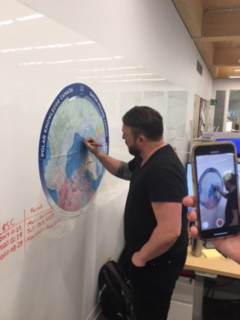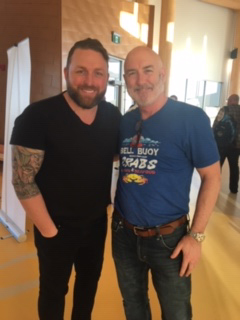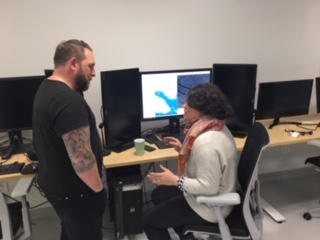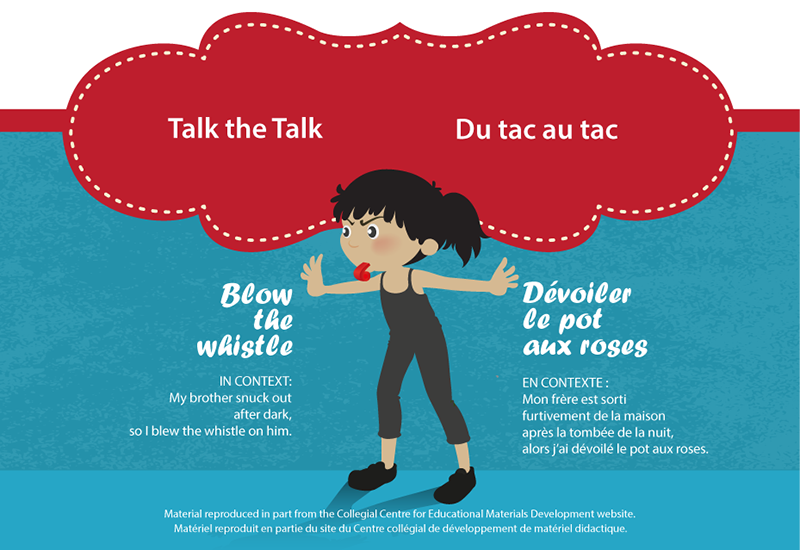- FROM THE TOP
- POLAR in the news
- Antarctic research: Why it matters and how POLAR is involved
- International Women’s Day #IWD2020
- The Rendez-vous de la Francophonie 2020
- POLAR’S PEOPLE
- Johnny Reid visits CHARS
- POLAR employee shows great sportsmanship during the Yukon Quest
- LEARNING AND PERFORMANCE
- Inuinnaqtun/Inuktitut word of the week
- Are you ready to Talk the Talk?
- GCcampus Upcoming Events
- UPDATES
- POLAR Events Calendar
- WORKPLACE NOTICES
- Our mental health is important
FROM THE TOP
POLAR in the news
Click on the headlines below to read the recent articles mentioning POLAR:
Barcode Bulletin – Reflections on conducting fieldwork in Nunavut, Canada by Crystal Sobel
Royal Roads University – Science is for everyone: Ten years of NSERC PromoScience projects with Royal Roads University and partners (February 20, 2020)
The Goan Everyday – Arctic Research: Canada keen on collaboration with India (February 26, 2020)
Times of India – Vasco’s polar research centre inks MoU with Canadian facility for summer collaboration (February 27, 2020)
Antarctic research: Why it matters and how POLAR is involved
Chapter 3: Why does the Antarctic matter? Recognizing Canadian achievements in research
Canadians have been active in Antarctic research for more than 100 years, and, despite the fact that Canada does not have its own Antarctic research station, their intellectual and technical expertise is highly valued by the international community. Even without land-based Antarctic research infrastructure, Canadian researchers are currently making substantial contributions to Antarctic science by partnering with the established research programs of other countries.
As an Arctic nation with substantial expertise in all Arctic research fields, Canada also has a unique role to play in fostering bi-polar research connections to enable greater understanding of how the polar regions influence each other and the global climate system. In order to ensure that Canadian achievements in Antarctic research are recognized both within Canada and abroad, POLAR is working towards providing more support to Canadian Antarctic researchers to ensure their contributions to Antarctic science are sustainable. POLAR is also working with other federal departments and the Canadian Committee on Antarctic Research to coordinate Canada’s overall activity in Antarctic research and governance.
International Women’s Day #IWD2020
International Women's Day (March 8) is a global day celebrating the social, economic, cultural and political achievements of women. The day also marks a call to action for accelerating women's equality.
International Women's Day (IWD) has occurred for well over a century, with the first IWD gathering in 1911 supported by over a million people. Today, IWD belongs to all groups collectively everywhere. IWD is not country, group or organization specific.
Ottawa Events
March 6, 2020
International Women’s Day on Parliament
March 7, 2020
Moms night out in celebration of International Women’s Day
March 8, 2020
International Women’s Day market at the NAC
The Rendez-vous de la Francophonie 2020
Did you know that today more than 9.5 million people in Canada keep the French language alive and thriving? As part of the events surrounding the International Day of La Francophonie (March 20), The Rendez-vous de la Francophonie 2020 – which are taking place from March 1 to 31 - are an opportunity to come together to celebrate French language and its numerous cultural expressions.
Did You Know?
- French presence in Ontario officially dates back to August 1, 1615, when Champlain met the Huron-Wendat chief at Toanché (now Penetanguishene). To learn more
- The Franco-Saskatchewanian flag was recognized as an official symbol of the province in 2005. To learn more
- Over 70% of the Francophones in Nunavut live in the capital, Iqualuit. To learn more
- In Nova Scotia, nearly 6% of the 29,456 residents whose mother tongue is French are immigrants. To learn more
- The official Newfoundland-Labrador Francophone flag was first hoisted in 1987. To learn more
- British Columbia is home to the fourth-largest French-speaking community in Canada. To learn more
- French-speaking people have been active in the Yukon since the 1800s. To learn more
POLAR’S PEOPLE
Johnny Reid visits CHARS
Country music singer Johnny Reid was the featured artist during the 21st annual Kitikmeot Trade Show in Cambridge Bay in February. He performed for the public at a free community concert on February 9 and then again for the trade show delegates the following day.
During Reid’s time in Cambridge Bay, he took the opportunity to tour the CHARS campus. POLAR staff gave him a full tour of the campus and he was particularly interested to learn more about muskox.



POLAR employee shows great sportsmanship during the Yukon Quest
POLAR’s Rob Cooke was one of fifteen mushers competing in the recent Yukon Quest. The Quest, which began in 1984, is an annual 1,600 km international sled dog race spanning across the Yukon and Alaskan wilderness. It takes place in February when weather conditions can be the coldest and most unpredictable. The Yukon Quest can last anywhere from 10 to 16 days until the final dog team reaches the finish line.
During the treacherous and exhausting journey, a musher by the name Richie Beattie tumbled from his sled due to sleep deprivation. Rob Cooke pulled up behind Beattie — his dogs had continued without him — and gave him a ride to the nearest checkpoint.
Read more on the story here.
LEARNING AND PERFORMANCE
Inuinnaqtun/Inuktitut word of the week
Kitikmeot, as in the Kitikmeot Region, is spelled Qitirmiut in Inuit Cultural Institute Standard Orthography, which is the standard writing system used across Inuit Nunangat. “Kitikmeot” is written in an older non-standard writing system.
The word means “people of the centre.”
qitir/miut
centre/people of
Pronounce it like this :
qee-teer-mee-oot
Listen to the pronunciation here:
Are you ready to Talk the Talk?

GCcampus Upcoming Events
Spotlight on ACCESSibility: Programs and Services
The Government of Canada is the largest provider of services to Canadians. It is responsible and accountable for the accessibility of its programs and services, including through its points of presence across the country, call centres, and online services.
Come meet experts who will share examples of how to better design and deliver accessible programs and services and integrate accessibility considerations early on in program design. They will provide recommendations regarding the Accessibility Strategy for the Public Service and offer tips and tools you can use immediately to help your organization meet its obligations under the new Accessible Canada Act.
March 11, 2020 | Ottawa | Webcast
You can register to the in-person meeting or webcast here. Please discuss with your supervisor for approval before proceeding.
The Transformative Experience of Visiting the North
Join in as three executives talk about their recent visit to Iqaluit, the capital of Nunavut, as part of their leadership program. Learn how this experience has forever changed their perspective on the north—especially its unique environmental, social and economic challenges and how we should address them.
March 12, 2020 | Ottawa | Webcast
You can register to the in-person meeting or webcast here. Please discuss with your supervisor for approval before proceeding.
UPDATES
POLAR Events Calendar
You will find below the latest version of the POLAR events calendar, including upcoming events and conferences for your information.
Note: The calendar is subject to change. Any travel has to be pre-approved by the appropriate delegated manager.
Please send any calendar updates or additions to Jerry Kallada at jerry.kallada@polar.gc.ca
POLAR events calendar: March 5, 2020
UPDATES
Our mental health is important
Healthy stress management is a goal we all strive to obtain. We all experience different stressors, have different reactions and different types and numbers of support. However one common service employees and immediate family members have access to is the Employee Assistance Program which provides psychological support assistance that is free, confidential, easy to access and available 24/7.
Self-help strategies are also effective in preventing and addressing the effects of stress. The following site offers a variety of researched- backed stress management approaches, real life stories of how people have successful applied these strategies and the opportunity to develop personalized stress plan management plans. To access this information, please visit: https://www.stressstrategies.ca/
You can contact EAP 24/7 at 1-800-268-7708 or 1-800-567-5803 for the hard of hearing and the deaf.
